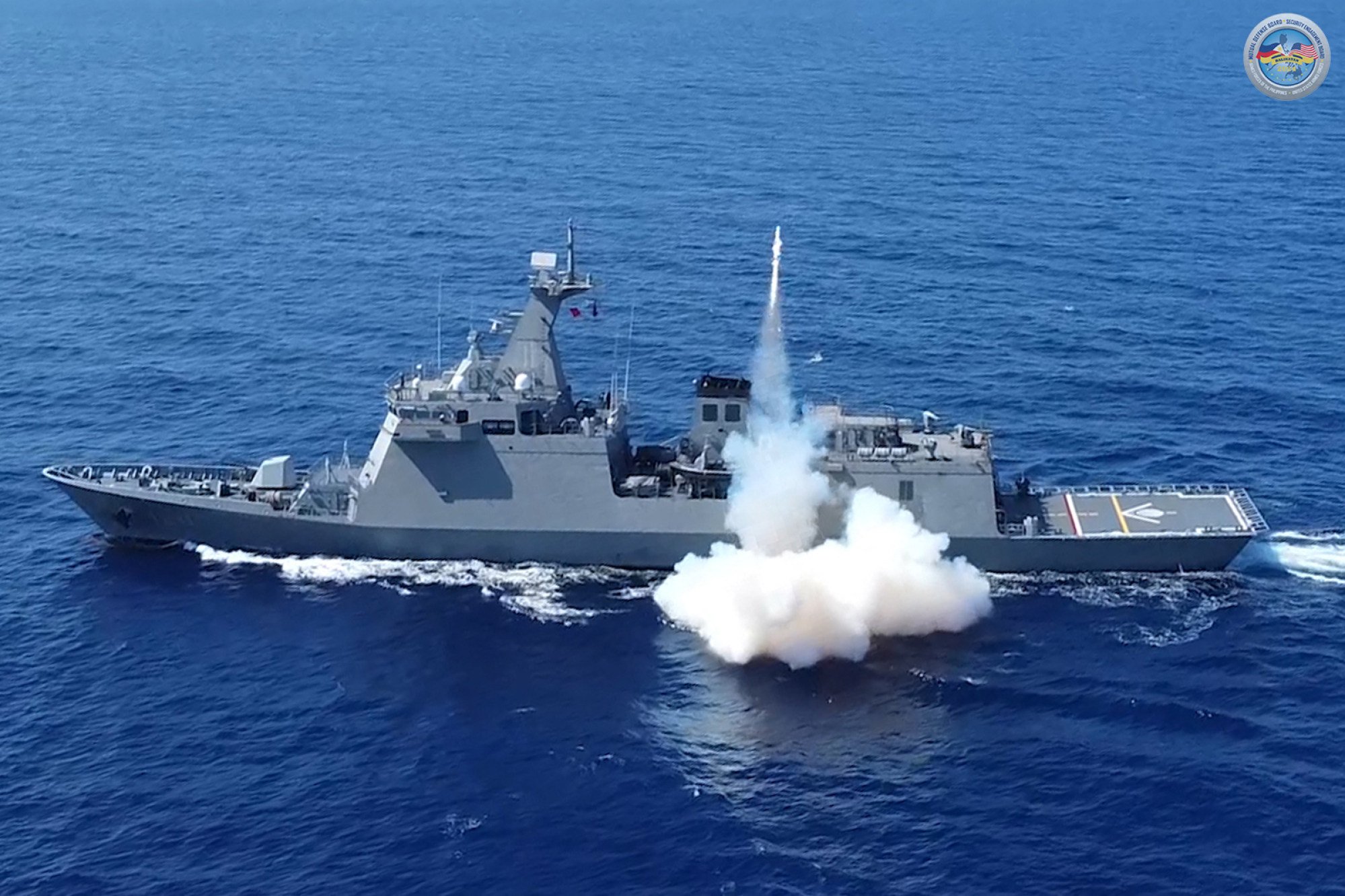China Calls For Philippines' Removal Of Missile Systems In South China Sea

Table of Contents
China's Official Stance and Demands
China's official stance, conveyed through its Foreign Ministry, is that the deployment of Philippine missile systems on disputed islands constitutes a serious threat to its national security and violates its territorial claims in the South China Sea. This is based on China's assertion of sovereignty over most of the sea, often referencing the controversial "Nine-Dash Line," a demarcation that has been widely rejected by international courts and neighboring countries.
- Official Statements: The Chinese government has issued several strongly worded statements condemning the Philippine military actions, accusing the Philippines of escalating tensions and undermining regional peace.
- Justification: China justifies its demand by citing historical claims based on the ambiguous "Nine-Dash Line," claiming these islands as integral parts of its territory. They argue the missile systems threaten China's sovereignty and security interests.
- Diplomatic Pressure: Beyond official statements, China has exerted significant diplomatic pressure on the Philippines, utilizing various channels to convey its displeasure and push for compliance. This includes bilateral meetings and communication through various diplomatic avenues.
- Consequences of Refusal: The potential consequences for the Philippines refusing to comply are significant, ranging from further diplomatic isolation to potential economic repercussions and increased military posturing by China in the region.
The Philippines' Response and Counterarguments
The Philippine government has firmly rejected China's demands, emphasizing its right to self-defense and the protection of its territorial integrity. The deployment of missile systems, according to the Philippines, is a necessary measure to safeguard its own national security interests in the face of perceived Chinese aggression.
- Official Response: The Philippines has publicly defended its actions, stating that the missile systems are purely defensive and are intended to deter further encroachment by China on disputed territories.
- Justification for Deployment: The Philippines argues that the deployment is a justifiable response to China's increasing military presence and assertive actions in the South China Sea, citing instances of harassment and incursions into Philippine-claimed waters. They maintain the right to protect their citizens and their sovereign territory.
- US-Philippines Alliance: The strong alliance between the Philippines and the United States plays a crucial role in this context. The US military presence in the region and its security guarantees provide a degree of deterrence against further Chinese aggression.
- Domestic and International Ramifications: The Philippines' decision carries significant domestic political ramifications, potentially strengthening its nationalistic stance and garnering public support. Internationally, it reinforces the country's commitment to defending its claims and strengthens its alliances.
International Implications and Reactions
The escalating tensions between China and the Philippines have significant international implications, impacting regional stability and the broader balance of power in the South China Sea. The dispute is closely watched by regional organizations like ASEAN (Association of Southeast Asian Nations), other nations with interests in the region, and international bodies like the United Nations.
- ASEAN Response: ASEAN has called for de-escalation and adherence to international law, attempting to mediate the conflict, though its effectiveness remains limited given China's powerful influence.
- Regional Stability: The situation threatens to destabilize the region, raising concerns about potential military escalation and the disruption of trade routes.
- International Law: The dispute highlights the complexities of interpreting international law regarding maritime boundaries and territorial claims in the absence of a universally accepted legal framework for the South China Sea. International courts have previously ruled against China's expansive claims.
- Risk of Armed Conflict: The potential for miscalculation and accidental escalation into armed conflict is a significant concern, demanding careful diplomatic maneuvering and de-escalation efforts.
The Role of the United States
The United States plays a pivotal role in the South China Sea dispute. Its military presence in the region, combined with its security alliances with several countries including the Philippines, acts as a significant deterrent against further Chinese aggression.
- US Response: The US has consistently voiced support for its allies, including the Philippines, and has condemned China's assertive actions in the South China Sea.
- US Military Presence: The US military presence provides a critical security umbrella for the Philippines and its neighbors, discouraging unilateral actions by China.
- Defense Pact: The US-Philippines Mutual Defense Treaty provides a framework for mutual defense against external aggression. However, the precise applicability of the treaty to the South China Sea dispute remains subject to interpretation.
Conclusion
The escalating conflict over the deployment of missile systems in the South China Sea is a critical development, highlighting the growing tensions and the potential for armed conflict between China and the Philippines. China's demands for the removal of these systems, coupled with the Philippines' steadfast resistance, demonstrate the increasing polarization in the region. The involvement of the United States, the responses from ASEAN, and the legal ambiguities surrounding territorial claims contribute to the complexity of this critical issue. This situation necessitates continued monitoring and informed discussion. Stay updated on the evolving situation and the implications of China’s demands and the Philippines' response in this critical area of the ongoing South China Sea dispute. Further research into the historical context and legal frameworks governing territorial claims is crucial to understanding the complexities of this critical issue.

Featured Posts
-
 Chat Gpts Ai Coding Agent A New Era For Software Development
May 20, 2025
Chat Gpts Ai Coding Agent A New Era For Software Development
May 20, 2025 -
 Conquering Solo Travel Fears A Practical Approach
May 20, 2025
Conquering Solo Travel Fears A Practical Approach
May 20, 2025 -
 Huuhkajien Mm Karsintamatka Uuden Valmennuksen Visio
May 20, 2025
Huuhkajien Mm Karsintamatka Uuden Valmennuksen Visio
May 20, 2025 -
 Eurovision 2025 Meet The Top Five Favorite Acts
May 20, 2025
Eurovision 2025 Meet The Top Five Favorite Acts
May 20, 2025 -
 The Future Of Abc News Shows Post Layoff Announcement
May 20, 2025
The Future Of Abc News Shows Post Layoff Announcement
May 20, 2025
